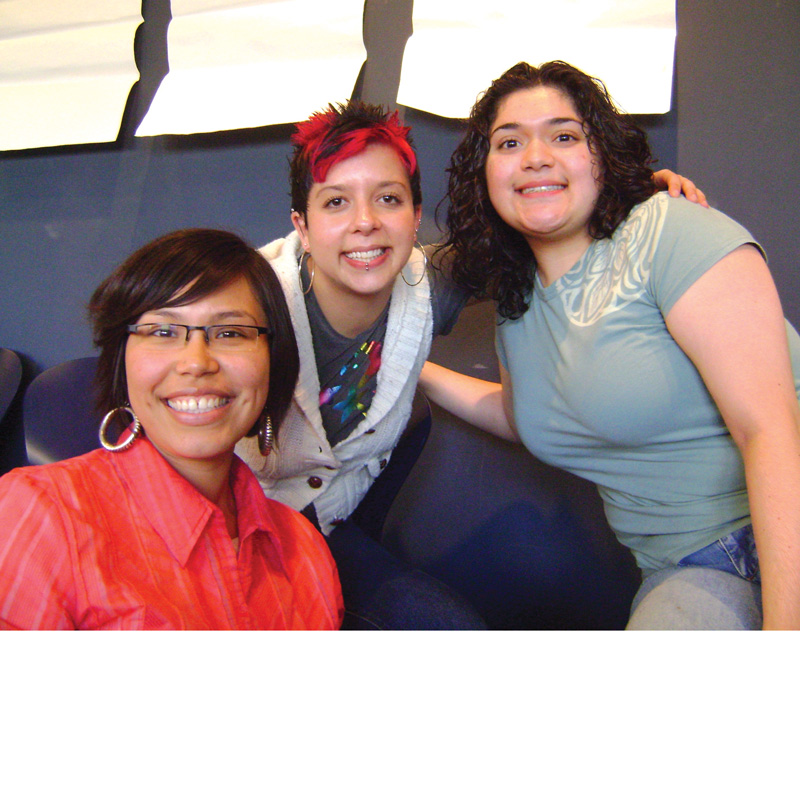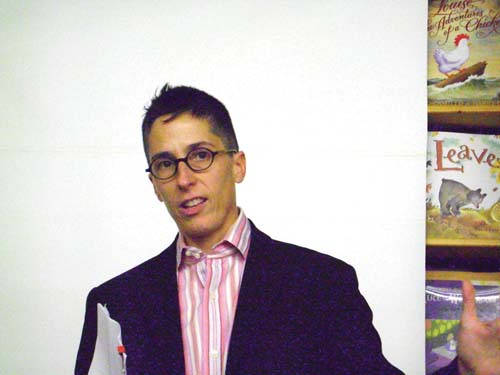Kenny Fries is a well-known gay writer and poet whose works have addressed the intersection of disability rights and queer identity. The author of the memoirs The History of My Shoes and the Evolution of Darwin’s Theoryand Body, Remember: A Memoir was in Chicago as part of a visit that included workshops at UIC followed by a presentation at Access Living March 19.
Category: Queer Politics, Culture, and History
In a move that will send ripples throughout Chicago’s LGBTQ community, Howard Brown Health Center announced that two of its key staff members have been placed on paid administrative leave: President/Chief Executive Officer Michael Cook and Chief Financial Officer Mark Joslyn. The news came through a brief March 30 press release, issued via Leslie Schreiber, director of media relations at Winger Marketing.
Howard Brown Health Center (HBHC) recently placed two of its key personnel, CEO/President Michael Cook and CFO Mark Joslyn, on paid administrative leave. Since then, some hints about the reasons for their ouster have emerged. The Windy City Times report prompted an open letter from David Ostrow, soon followed by a press release from Michael Cook announcing his resignation; both documents have brought more questions and speculations into the open. Meanwhile, HBHC’s press releases have also prompted more unanswered questions.
Violence is usually discussed within the context of heterosexual families and social groups. It’s widely assumed that people in same-sex households, communities, and relationships are either incapable of causing harm to each other, or that their needs can’t be met by mainstream anti-violence groups. As a result, significant issues like intimate partner violence or the particular needs of transgender youth seeking shelter from abusive homes are not addressed. This leaves portions of the LGBTQ community without the conventional resources available to heterosexuals who seek relief from abuse.
The Center on Halsted’s Anti-Violence Project and the National Coalition of Anti-Violence Programs recently hosted a roundtable and regional training sessions. These included a public screening of the documentary, Dangerous Living: Coming Out in the Developing World, May 22. It was one of three events at the Center that week that examined violence and the LGBTQ community.
Soon to enter its 13th year, Dyke March Chicago is, for many lesbians and transgender people, an alternative to Pride Parade. Historically, the March has remained on the city’s North side. This year, it’ll be in Pilsen, home to a predominantly Latina/o community. In the last few weeks, organizers began hearing complaints about the change in venue, and decided to hold a town-hall meeting. According to Nicole Perez, a member of the Dyke March organizing committee, the event was held to dispel misinformation and stereotypes about the logistics of the March and the neighborhood.

The law firm of Hinshaw and Culbertson, 222 N. LaSalle, hosted a presentation by Kyle D. Young, a financial advisor at Wachovia Securities, titled “Financial and Legal Challenges for the GLBT Community.” This was part of the Citywide Pride events, which are designed to promote “advocacy and equality for LGBT employees” in the corporate workplace. The same-sex marriage movement often raises the issue of what happens to the assets of a couple upon the demise of one partner, arguing that estate law and benefit packages favor married, opposite-sex couples; Young discussed financial strategies in this context.


